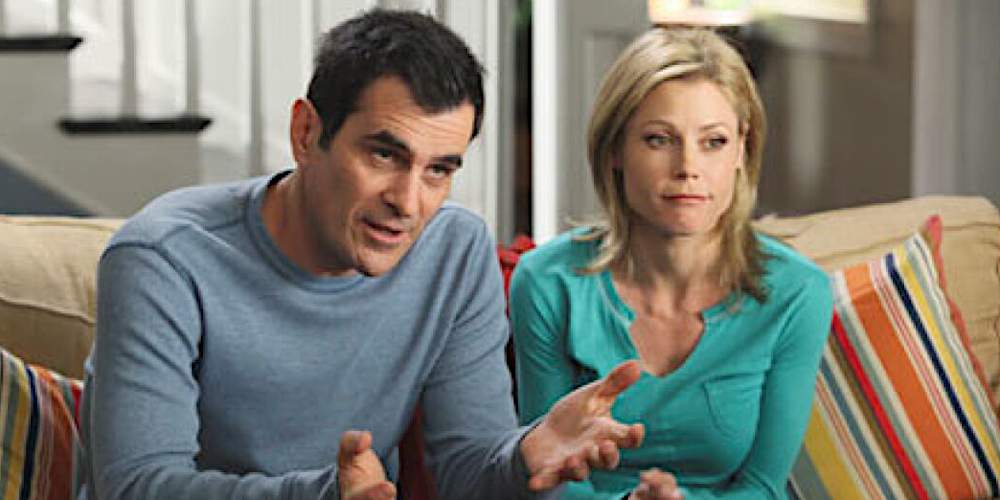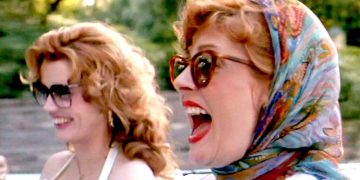The film industry is changing fast, yet some things never seem to change. Throughout the years, we got used to watching certain character archetypes and patterns in our movies—some pleasant, some less so, but all of them entered our imaginations and shaped the way we watch stories.
Yet, some of us grew to watch films with a more critical eye, and it's clear now that some common character tropes of the past just don't work that well anymore—to the point where they feel unsatisfying.
Here are several of these outdated character tropes that are reductive, sexist, or just plain uncomfortable. They should've been retired long ago.
5. The Sexy Tomboy
The Sexy Tomboy is a mashup of two different—but also popular—character tropes: the Tomboy and the Cool Girl. Notable examples of the Sexy Tomboy include Mikaela Banes in Transformers, Trudy Chacon in Avatar, and Natasha Romanoff in the Marvel Cinematic Universe.
She enjoys things that are stereotypically "for men": beer, car engines, contact sports, close-quarters combat, cigars and scotch, etc. She's also extremely laid back, tough, never emotional. She slaps feelings away with sarcasm while pounding down hot dogs and never gaining weight.
Even better if she has major traumas and can't develop healthy relationships. Double the fun with no commitment needed.
Simply put, the Sexy Tomboy is "one of the guys" in a top model's body. It's a trope that's founded on overtly gender-normative character traits and portrayed through outdated sexist norms.
Who wouldn't want to meet a self-reliant, emotionally low-maintenance, extremely attractive person? Who not only effortlessly matches your every interest but can also destroy you at beer pong?
That's the issue: the Sexy Tomboy trope isn't played for likability but rather the male gaze. She's what remains of the good ol' days when women were only welcome in the writer's room to deliver coffee and doughnuts.
The Sexy Tomboy symbolizes a patriarchal era of cinema that's coming to an end. A woman can have her personal interests, but not merely as a way to entice and connect with other men (or anyone else, really).
If not completely abandoned, the Sexy Tomboy trope should be revisited through self-reflection. The male gaze is dying, and so is my will to watch Scarlett Johansson deal with its therapeutic obstinacy. She deserves better, and so do we.
4. The Perfect Hero
Good-looking and reliable, like Christopher Reeve. Scruffy and charming, like Harrison Ford. Cinema heroes were long made to be irresistably perfect: often male, with proper moral values, plus physical and strategic skills.
They're temperamental, but that's handy when it comes to fighting the bad guys. They can be reckless, because why not? And they're usually incapable of heartfelt emotions or deep conversations. They're The Heroes.
This trope is changing somewhat, we'll admit. For one thing, the Perfect Hero was typically played by white actors only, but that's not the case anymore—at least, not as as much. For another, the Perfect Hero is starting to develop a bit of personality.
Back in the day, supporting characters were in charge of all the comedy. These days, film studios have figured out that we like tough guys even more when they're funny, too.
But in a way, doesn't that just make the Perfect Hero even more perfect? They've developed an almost self-reflective sense of humor! Now they just toss in snappy one-liners before moving on with the action.
The Perfect Hero trope has still a long way to go. Well-rounded hero characters are being explored in cinema, but they're still rare. We don't just want morally complex situations; we want heroes who have complex personalities and complex emotions.
3. The One Who Suddenly Changes
A character like Penny in The Big Bang Theory will find out that her boyfriend, David, is actually married. Minutes later, she's having a heart-to-heart conversation with Leonard. This "sudden change" is a very common way to get rid of obsolete secondary characters.
Protagonists are often linked romantically, so viewers will root for them. Their interest in each other will progress like a sinusoid to keep the audience glued to their screens. Will they? Won't they?
It usually goes like this: The protagonist starts dating someone new, and that person seems emotionally healthy and available. They have great chemistry and everything seems perfect. Then comes the Sudden Change.
Over subsequent scenes or episodes, the love interest will began to say and do things that are completely out of character. The frustrated protagonist slinks back and vents about their bad luck, which results in deepening bonds between them and whoever's lending them an ear.
And everyone—in the movie, in the show, in the audience—forgets about The One Who Suddenly Changed and moves on.
We're not talking about characters who reveal their unusual traits after a good first impression. We're talking about writers who don't have any creative ideas for writing a character out, so they just change them into an unlikable variant without any reason or foreshadowing.
It's downright lazy and it goes against a broader movement that we're seeing in higher-quality movies and TV shows: side characters matter.
2. The Mysterious Guy
Good-looking, cold-mannered, and otherwise devoid of personality, the Mysterious Guy has been haunting us since the dawn of cinema. Christian Grey of Fifty Shades trilogy is a prominent example, which (sadly) means this trope is still alive and well.
Almost like the twin brother of the Sexy Tomboy, the Mysterious Guy is given a set of toxic behaviors that are labeled as "charm." Overlapping with the Bad Boy trope, he often starts off as cold, rude, sarcastic, and dismissive—to later become... well, slightly less so.
His mystery is misunderstood, the movie wants to say. He treats you badly? That's because he likes you! He's actually a kind-hearted man deep down, if you only just get to know him personally.
Writers might think we're viewing his shadiness as a certain je ne sais quoi, but that's in the past. Audiences may have lent the Mysterious Guy a more generous interpretation in years past, but not anymore.
Thanks to these movies and TV shows, too many people have learned that being mean or mysterious for the sake of charm is acceptable behavior. I say, begone Mysterious Guy trope! Deep stares, emotional unavailability, and leather jackets are no longer a substitute for a personality.
1. The Karen
Nagging, complaining, insisting. The Karen character trope is often portrayed as an unattractive, prim, annoying wife. They're normally paired up with an unhappy or subdued husband.
The Karen character trope is outdated because it's founded on the idea of showing what a woman should not be in marriage. It's a reductive character trope that demonizes the complex dynamics of marriage, turning both wives and their husbands into jokes.
It's quite insidious in how it often excuses the husband's behavior by exaggerating the wife's negative traits. Incapable of empathizing with her, we end up rooting for a husband who's far from perfect himself, and his flaws are rarely lampshaded.
This portrayal isn't just a lazy perpetuation of a fictional character type, but a damaging reinforcement of a living stereotype: the aging wife. It's extremely shallow and it spreads the notion that women in committed relationships turn insufferable when their beauty fades with age.
When men turn old in media, they're portrayed as "silver foxes." When once-bubbly young women turn old, they become nagging nightmares. A bit of a double standard there, no?



